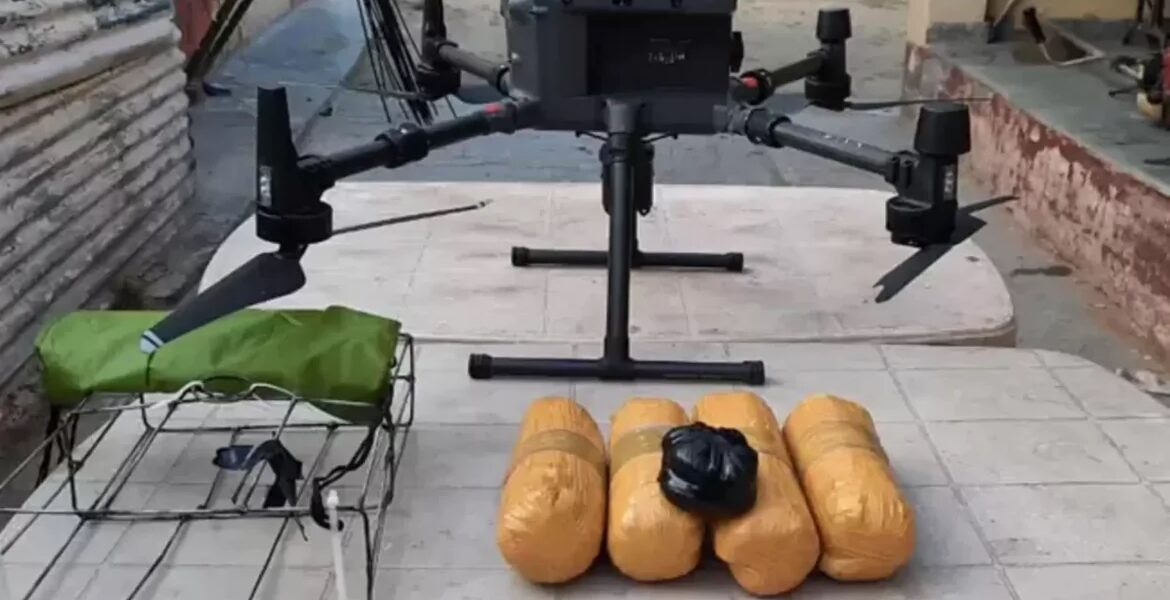In the border district of Punjab, a sinister transformation in the realm of narcotics has emerged, reshaping the patterns of drug consumption and leaving a devastating impact on the lives of the region’s youth. The decline in the use of traditional narcotics like opium, poppy husk, and cough syrups is marked, and the culprit behind this shift is the ominous rise of heroin, delivered seamlessly by drones infiltrating from across the border in Pakistan.
These aerial contraptions, resembling silent messengers of doom, have been dropping yellow nylon bags, containing heroin known colloquially as black tar, stuff, junk, smack, or thunder, into agricultural fields near the international border (IB). The ease of access to this potent drug has not only altered the dynamics of drug use but has also raised alarming concerns about the unchecked influx and distribution of heroin within the region.
Official reports of drone-driven heroin drops are only the tip of the iceberg. For every kilogram of heroin seized by security agencies, a conservative estimate suggests that 5 to 10 times that amount slips through the cracks, making its way into the local drug market. What’s more concerning is that a significant portion of these unnoticed consignments remains within Punjab, casting a dark shadow over the future of the state’s youth.
Statistics drawn from various sources reveal a chilling reality: a staggering 80 percent of individuals seeking treatment at de-addiction centers are addicted to heroin. “This was not the case until a few years ago when the drone phenomenon was unheard of. In the past two years, drones have inundated the market with heroin,” explains Romesh Mahajan, Project Director of the Red-Cross rehabilitation center.
Before the era of drones, heroin was illicitly pushed into Indian territory through pipes inserted in barbed wire at the IB, a risky venture often thwarted by the vigilant Border Security Force (BSF). The advent of drones has revolutionized the illicit drug trade, offering unprecedented advantages to all involved parties, from major smugglers to small-time peddlers, carriers, and the end-users.
The ease of transporting heroin powder compared to the bulkier opium or poppy husk has only exacerbated the crisis. As the drones continue to operate with impunity, delivering their cargo of despair, Punjab finds itself grappling with a new and formidable adversary in the fight against drug abuse. The question now looms large: Can the authorities stem the tide of this airborne heroin onslaught before it inflicts irreparable damage on the youth and social fabric of the region?


